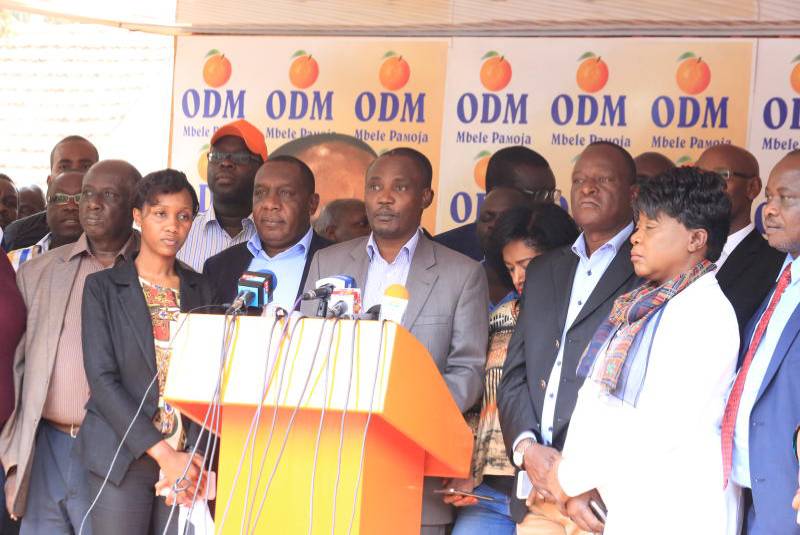×
The Standard e-Paper
Stay Informed, Even Offline

Parliamentary Leader of Minority John Mbadi flanked by other ODM MPs addressing the press at Orange house on 26/9/17-[Photo: Beverlyne Musili/Standard]
Legislators are preparing proposals to overhaul the presidential system in favour of the parliamentary system, the Sunday Standard has established.